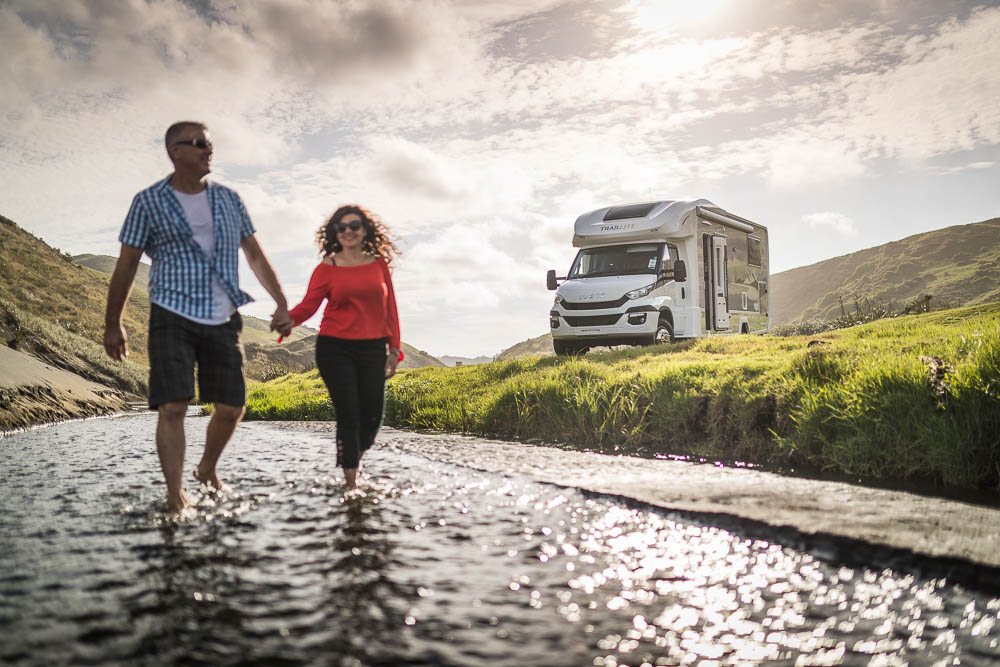Buying a motorhome - can you afford it?
You’ve noticed it at the supermarket. You’ve noticed it at the petrol station. You’ve noticed it pretty much everywhere. It seems that everything is getting more expensive. In fact, according to Statistics New Zealand, inflation is running at a 32-year high and currently sitting at 7.3%. And, if you’ve been keeping an eye on the price of motorhomes and caravans over the past 18 months, you will have noticed they have not been immune – prices have steadily been going up.
There are many contributing factors, from Covid lockdowns to microchip shortages, shipping issues, and compromised supply. All manufacturers and retailers across the industry are impacted, and you, as a potential buyer, will be impacted, too.
You may wonder what this will mean in terms of pursuing your dream to hit the road for the first time or upgrading your existing unit. You may be considering holding off for a year or two to see how things pan out, buying second-hand over new, or you may have decided to put the whole idea on ice for now.
While the market has changed, there are a few factors to consider when considering motorhome/caravan affordability.
Consider the overall cost of ownership.
How much the unit will cost to buy now versus what you will get back when you finally sell your motorhome or caravan? Currently, the price of new units is being driven up by supply and logistics issues. The knock-on effect has caused the tide to rise on the second-hand market – we regularly hear of people selling their late-model motorhomes or caravans for what they originally paid, or even occasionally making money on the transaction.
What this means is that you need to be sure that the brand of motorhome you buy is well-established and sought-after. It’s a known fact that well-established products and brands depreciate far less than others.
Look for the "backed by TrailLite" stamp on any of the brands we import. While you might be paying a bit more up-front than you had anticipated, remember that you will also be able to on-sell the unit for a higher price. Accordingly, while the cost of entry to the roaming lifestyle has increased, the overall cost of ownership has not.
Compare the pros and cons of purchasing second-hand or new
Sure, the past 18 months have seen some hefty wait times on new units. However, we are now starting to see a lot of models available straight from the yard or with a month or two wait time. Naturally, the best thing about buying new is that you get full warranties and peace of mind.
While prices have increased significantly for good quality second-hand units, they are naturally still cheaper than many brand-new options – make sure you do your homework. You have no protections when purchasing a second-hand motorhome privately, so do your due diligence and ensure mechanical and habitation inspections are done before putting your money down. If buying from a licensed motor vehicle dealer, you do have the additional peace of mind of protection under the Consumer Guarantees Act.
For further information on buying second-hand, click here 
Upgrading or changing your current model
If you already have a motorhome and want to upgrade or change to a different layout, then you’re in an excellent position. You can pay your deposit and continue travelling in your current motorhome if your preferred model is on backorder. Also, you might be pleasantly surprised at the price you may be able to get for your existing unit – especially if you choose to list it privately. Jump on Trade Me and have a look around – there are still not many good second-hand units available, so if you’re happy to take some good photos and do a write-up on your unit, you could close for a very nice sum, indeed.
Finance
If you’re looking to borrow to finance your purchase, it will cost a bit more than it has over the past five years, so make sure you crunch the numbers before jumping in. However, rising interest rates work in your favour if you have investments – you may feel a little more confident as the interest rates on those term deposits begin to creep up slowly.
There’s no doubt that the market has changed. However, the fact is that demand is still high, and supply is relatively low.
So, make sure you do your homework – make the most of our online resources and book a consultation with our Product Specialists, and we can help ensure you get into the perfect unit to suit your needs.


